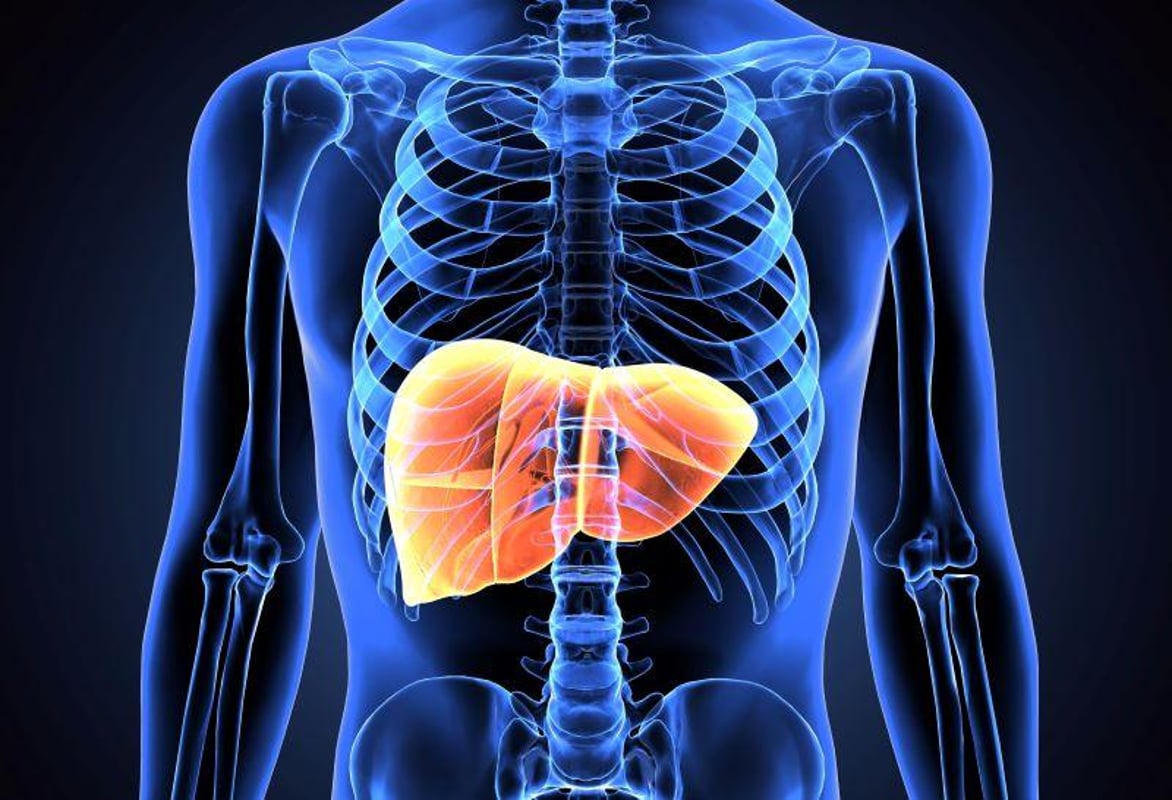Hepatitis C Virus Still Leading Cause of Hepatocellular Cancer in Men

THURSDAY, Sept. 7, 2023 (HealthDay News) -- The leading cause of hepatocellular carcinoma (HCC) is still hepatitis C virus (HCV) among men, but the rates of HCV-HCC have decreased since 2015, according to a study published online Sept. 5 in Clinical Gastroenterology and Hepatology.
Paulo S. Pinheiro, M.D., Ph.D., from the University of Miami School of Medicine, and colleagues examined the predominant etiology of each of 14,420 HCC cases from the Florida statewide cancer registry diagnosed during 2010 to 2018. The intersection between etiology and detailed race-ethnicity was assessed using age-adjusted incidence rates (AAIR). Etiology-specific temporal trends were examined based on diagnosis year.
The researchers found that the leading cause of HCC among men remains HCV, but since 2017, the leading cause among women is nonalcoholic fatty liver disease (NAFLD). U.S.-born minority men have particularly high HCV-HCC AAIRs, including Puerto Rican, African American, and U.S.-born Mexican Americans (10.9, 8.0, and 7.6 per 100,000). Among all Hispanics and Filipinos, NAFLD was more common, while hepatitis B virus (HBV)-HCC was more common among Asian and Haitian Black men. In Asian women, HCV-HCC surpassed HBV-HCC. Since 2015, there was a rapid decline in population-based HCV-HCC rates (−9.6 percent annually), while increases were seen in alcohol-related liver disease-HCC and NAFLD-HCC (+6.0 and 4.3 percent, respectively).
"Cancer control efforts should begin by expanding screening programs to the most vulnerable groups noted in the study," coauthor Patricia D. Jones, M.D., also from the University of Miami School of Medicine, said in a statement.
Abstract/Full Text (subscription or payment may be required)
Related Posts
Trader Joe’s Salami Snacks Tied to 20 Salmonella Cases in 8 States
TUESDAY, Oct. 26, 2021 (HealthDay News) -- Citterio Premium Italian-Style Salame...
Retiran casi 700,000 moisés mecedoras tras la muerte de 15 bebés
LUNES, 9 de enero de 2023 (HealthDay News) -- Tras las muertes de 15 bebés, se...
Per-Patient Costs of Metastatic Prostate Cancer Estimated at $31,427
TUESDAY, Dec. 27, 2022 (HealthDay News) -- The estimated annual per-patient...
Leerle en voz alta a sus hijos podría hacerlos más inteligentes
MARTES, 31 de mayo de 2022 (HealthDay News) -- Leerle a los niños pequeños crea...
